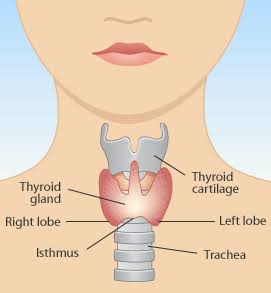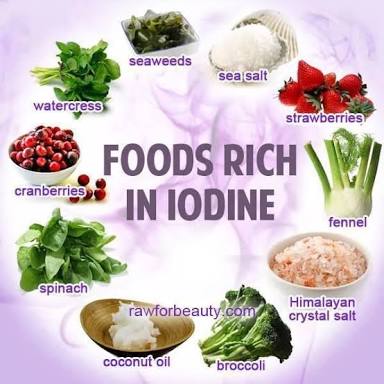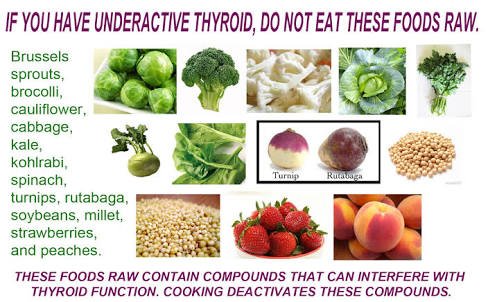Your voice is hoarse and your face is puffy. You are losing your hair and gaining weight. Seeing all these, you are going into depression, everybody is noticing your mood swings and a drastic behaviour change. What the hell is happening to you? You would deny but you could be suffering from HYPOTHYROIDISM.
We sometimes ignore the small warnings that our body gives, thinking that the problem will go away. But if you want to ward off major health issues, take serious note of these changes, and get yourself tested and treated timely.
ALSO READ: Control PCOS (Polycystic Ovarian Syndrome) By Adopting 5 Lifestyle Changes In Your Routine
HYPOTHYROIDISM
“Hypo” means less and “Thyroid-ism” means a disease of the thyroid gland. Hypothyroidism is a malfunction of the thyroid gland, which causes decreased production of the thyroid hormone. The risk of developing hypothyroidism is greatest in women over 50 and risk increases with age, particularly in the menopausal stage. Women are 7 to 10 times more likely than men to suffer from hypothyroidism.
ROLE OF THYROID GLAND
The small butterfly-shaped thyroid gland, located in the front base of your neck just below your Adam’s apple, is part of your endocrine system. It produces thyroid hormones – triiodothyronine (T3) and thyroxine (T4) – which affect metabolism and play a role in body temperature; brain and muscle function; skin and hair dryness; cholesterol levels and menstruation. In short, thyroid gland puts a tremendous effect on nearly every aspect of your health, from weight to mood to heart rate to energy level.

SYMPTOMS OF HYPOTHYROIDISM
- Fatigue.
- Increased sensitivity to cold.
- Constipation.
- Dry skin.
- Weight gain.
- Puffy face.
- Hoarseness.
- Muscle weakness.
- Elevated blood cholesterol level.
- Muscle aches, tenderness, and stiffness.
- Pain, stiffness or swelling in your joints.
- Heavier than normal or irregular menstrual periods.
- Thinning hair.
- Slowed heart rate.
- Depression.
- Impaired memory.
Signs and symptoms vary, depending on the severity of the hormone deficiency.
Patients with an underactive thyroid (hypothyroidism) tend to have a very low BMR which hampers the body’s ability to burn calories at a normal rate. So, one of the most common concerns for them is maintaining proper body weight. Of course, this makes shedding excess weight difficult but NOT impossible. The best long-term solution for maintaining proper weight would be a combination of a healthy diet and exercise to regulate metabolism and burn calories.
I have seen many people saying – “Oh I have gained so much weight, am I suffering from hypothyroidism?” Let me make it clear, Hypothyroidism rarely causes significant weight gain. Only about 5-10 pounds (2.2-4.8kilos) are usually attributable to the disease. If you have gained more, the cause is likely how you eat and whether you work or not. Diet and exercise go hand in hand to control weight gain for a hypothyroid patient. Have a look :
DIET FOR HYPOTHYROIDISM
Apart from your thyroid medication, you can bolster thyroid function with a well-balanced diet. One thing you should keep in your mind is – “Don’t Diet, just Eat Right”. As you know, hypothyroidism lowers down the metabolism. Then how is going on a diet going to raise your metabolism? It’s more likely to make it even lower. So always try to have 5-6 small frequent meals rather than consuming large bulky meals. It will not only help your intestine to digest food but will also keep your energy level up. Keeping a food journal is important for someone with hypothyroidism to track their calorie intake.
DIET
A diet high in healthy fats, moderate proteins, and moderate to low carbohydrates is best for thyroid function.
- Include complex carbohydrates in the form of fibre-rich foods like whole cereals, whole grains such as whole wheat, oatmeal, quinoa, vegetables, whole pulses etc. Complex fibres make you feel full and stop you from overeating.
- Stay away from starchy, refined carbs (source of empty calories) with a high glycemic index such as refined flour, crackers, pasta, white rice, white bread, rich desserts and bakery items like cakes, cookies, pastries etc.
- A diet low in protein sources stress the body and cause suppression of the thyroid gland. Try to have at least 20 g of protein with breakfast as this can give you a slight metabolic boost. Daily protein intake should be as much as 70-100 g. Eat lean protein like cheese, potatoes, nuts, fish, skinless turkey and chicken breast. An adequate amount of protein will also prevent hair fall.
- Lack of iodine is one of the most common causes of the thyroid. Iodine deficiency leads to a reduction in the production of thyroid hormone, causing poor metabolism, weight gain, water retention, and fatigue. So foods rich in iodine (iodized salt, seaweeds, seafood, sushi, and other saltwater fishes) and selenium (meat, chicken, dairy products, garlic, onion, brazil nuts, whole unrefined grains etc.)

Since most weight gain from hypothyroidism is caused by excess salt and water, it is wiser to cut as much sodium from your diet as you can. Excess sodium causes a person to retain water, which makes him heavier. Don’t consume more than 500mg of sodium per day.
ALSO READ: 7 Best Natural Healthy Sugar Substitutes With Low Calories
Some tips to reduce WATER RETENTION in your body-
- Avoid unhealthy, processed or junk foods, many of which are loaded with sodium like potato chips, nachos, pizza, burgers, cake, and ice cream etc.
- Avoid salted nuts, salted crackers, pickles, sauces, salt-preserved foods etc.
- Don’t sprinkle salt on your salad.
- Avoid sugary drinks, especially processed fruit juices and soft drinks because the carbonation in soft drinks leads to water retention.
- Eat slowly to help digest your food better.
- Drink 10-12 glasses of water in a day.
- Include fruits and beverages like coconut water, plain lemon water etc. in your diet. This will also keep the metabolism rate up throughout the day.
- Avoid having raw vegetables like broccoli, cabbage etc.
ALSO READ: Healthy Eating Tips To Stay Slim And Fit.

EXERCISE
Make exercise, an important part of your overall strategy if you want to control weight gain in hypothyroidism. Controlling weight is difficult even for a healthy individual and if you are suffering from hypothyroidism, it becomes quite a challenge for you. Although your energy level will be low try to engage in some physical activities. Doing exercise burns calories and can counter the effects of your sluggish metabolism.
The most commonly asked question is what is the best form of exercise for hypothyroidism? I would recommend LOW IMPACT cardio and strength training is always the best option to start with. Here I am putting stress on “low impact” exercises so that it would not put too much pressure on your joints because joint pain is another most common symptom of hypothyroidism.
CARDIO
These exercises help in strengthening the cardiovascular system as hypothyroidism reduces cardiac fitness also. Aerobic activities not only strengthen the heart and lungs but also help in burning calories. Do a brisk walk, you can use a pedometer which will help in counting your steps. Apart from walking, running, rowing, on-the-spot marching, jogging, swimming, and stationary cycle are other beneficial options. You can start with gentle yoga as well. Keep one thing in mind – “Go slow and don’t push yourself too much”. Take the stairs every time you have to climb up or down. A short medium-paced walk after your meals will be beneficial too.
ALSO READ: SURYA NAMASKAR YOGA: A Complete Body Workout In Just 15 Minutes
STRENGTH TRAINING
It helps a lot in losing weight. Weight training builds calorie-burning muscle while promoting your overall health. It burns more calories than fat, even when you are at rest. Avoid high-intensity exercises, always start at a low pace and work up to a higher level. You can also try on lunges, squats, leg raises, and push-ups. These exercises help in protecting the joints, tendons, and ligaments.

Try to alternate between the two like one day you do cardio and strength training on the other day. Enjoy your workout and make it a routine. Doing exercise has several benefits, it not only burns calories but also releases endorphins and other mood-enhancing happy hormones. This helps in relieving your stress and uplifts your mood.
Finish your regimen with stretching exercises to cool down your body and avoid muscle injury.
ADVICE
- Always consult your physician before starting any particular exercise regime.
- Never compromise on your medication. Take your medicines regularly and keep your thyroid levels as close to the normal range as possible. Try to take medicines at the same time every day so that you don’t forget it.
- Last but not least, avoid stress because it leads to unhealthy food choices and overeating.
If you have any queries regarding Hypothyroidism, feel free to write in the comment section below.

Hey Seema,
Glad to meet you.. 🙂
Great informative article indeed.. I really like this post and I just couldn’t hold myself to tweet this article on twitter. Best informative article on Hypothyroidism and this is very necessary thing to know everybody. I was really unaware about the symptoms of Hypothyroidism which is unbelievable!
Well information to cure this type of symptoms by diet. Here, you have described some food to cure this symptom which is really appreciable and I like it. Good advice..
Thanks for sharing.. 🙂
Have a nice day..
– Ravi.
Thanks for your appreciation Ravi ?
Hello mam,
Its an awesome article.. I also h hypothyroidism.. N I Dnt find weds, to describe my prlms, bt dis article contains evry possible solution of my prlms.. Thnk u so much fr sharing dis article..
It’s my pleasure Mansvini 🙂
After taking Synthyroid as prescribed, 50g every morning on an empty stomach for about three years, I began having severe stomach pains and an inability to sleep at night without waking up about 20 times therefore being tired all day. I stopped taking the meds. and the symptoms cleared up. Is there an alternative to Synthroid that won’t cause there side-effects?
Are you taking some supplements or medicines along with synthroid ? Check if you have any other medical condition also apart from thyroid. Because sometimes all these things interfare with synthroid leading to side effects. It’s better to consult your family physician as he knows your medical history. Plz don’t stop or change your medicines unless told by your doctor to do so. Take Care 🙂
Cn we tak green tea in thyroid
Gud question !
One should avoid overconsumption of green tea in thyroid. One cup a day, won’t do any harm. Actually it’s reactions varies from person to person. So better to consult your family physician before starting having green tea in thyroid.
I was taking 100g thyronorm n still my tsh level became 21.9 then after increasing dose to 138g it came to 5.9 in 7days ..now I m taking 112.5g is it fine
Madam what about lemon tea in thyroid situation ? There is any side effect of it ?
No there is no side effect of lemon tea. Try to avoid green tea if you are suffering with thyroid. You can take herbal tea, it will be good for you.